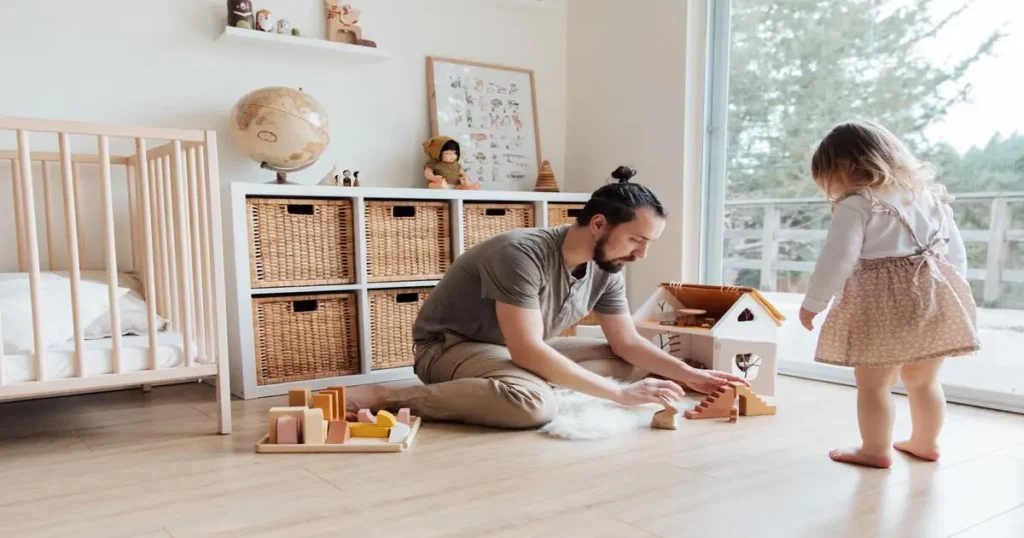Co-Parenting Tips: Raising Children in a Positive Way After Divorce

Co-parenting occurs when two parents join forces to raise their children, regardless of whether they’re still a couple. As time has passed, society has increasingly recognized the impact of divorce on children, causing the notion of co-parenting to evolve.
In earlier times, one parent, typically the mother, would be granted primary custody, while the other parent’s involvement would be minimal. Nonetheless, studies have demonstrated that children thrive when both parents actively participate in their lives, even after a divorce.
Inadequate co-parenting can result in adverse consequences for children, including heightened stress, anxiety, and challenges in their social and emotional growth. When parents fail to collaborate effectively, they might unintentionally establish an unstable environment for their children, leading to persistent long-term issues that can extend into adulthood.
Conversely, successful co-parenting after a divorce has the power to enhance children’s well-being and overall health. Emphasizing open communication, collaboration, and mutual respect, positive co-parenting fosters a more stable and nurturing atmosphere for children.
In this article, we will explore the significance of positive co-parenting and offer valuable advice on how to co-parent effectively, promoting the healthy growth and development of well-rounded children.

The Maturity of Parents as a Factor in Positive Co-Parenting
Maturity means being grown-up and responsible. Parents need to be mature when they co-parent because it helps their kids feel safe and happy. Here are some tips for being mature when co-parenting:
By embracing these tips and focusing on developing your maturity as a co-parent, you can create a more positive and nurturing environment for your children.
Types of Co-Parenting
Various approaches exist for parents to collaborate in raising their children:
1.) Parallel parenting: In this style, parents have limited communication and follow their methods of raising the children. While this can be beneficial if the parents often argue, it may confuse the kids due to inconsistent rules and routines.
2.) Cooperative co-parenting: Here, parents communicate regularly and make joint decisions regarding their children’s upbringing. This approach helps children feel more stable and secure. However, it may be challenging if the parents continue to disagree or engage in conflicts.
3.) Co-parenting with a mediator: In this scenario, a third party, such as a counselor or mediator, assists the parents in communicating and making decisions. This can be advantageous in preventing disputes, but it may require additional time and resources to involve an external helper.
Each co-parenting style has its pros and cons, and parents need to choose the approach that best suits their unique situation and fosters a healthy environment for their children to grow and thrive.
Shared Parenting: A Balanced Approach for the Well-being of Your Children
Shared parenting is a type of co-parenting arrangement in which both parents play an active and equal role in their children’s lives. This approach ensures that children maintain strong bonds with both parents, even after a divorce or separation.
The importance of shared parenting lies in its numerous benefits for the children’s emotional, social, and psychological well-being.
The Advantages of Shared Parenting
By embracing shared parenting, a co-parenting plan can provide children with a balanced, supportive, and nurturing environment that promotes their overall well-being and development.
Here Are Some Successful Co-Parenting Tips:
Co-parenting successfully after a separation or divorce can be challenging, but with the right strategies, you can create a nurturing environment for your children. Here are some tips to help you navigate this complex journey:
1. Embrace Flexibility
Flexibility is key in co-parenting. Life is unpredictable, and being adaptable when plans change can significantly ease tensions. If your co-parent is occasionally late for pick-ups or needs to rearrange schedules, try to accommodate these changes with grace. This kind of flexibility often encourages reciprocity, making it easier for you to request adjustments when needed.
2. Respect Different Parenting Styles
It’s normal for parenting styles to diverge after a separation. The crucial part is distinguishing between your preferences and your child’s needs. For example, while you might prefer a sugar-free diet, it’s more important to ensure that your child’s health and safety needs are met, like adhering to prescribed medication.
Accepting these differences can prevent unnecessary conflict and help your child understand that different rules apply in different environments.
3. Encourage Connection with the Other Parent
Supporting your child’s relationship with their other parent is essential. Simple gestures like displaying family photos or speaking positively about their time with the other parent can reinforce this connection.
Encouraging regular communication through calls or messages, especially if distance is a factor, helps maintain a strong bond.
4. Keep the Other Parent Updated
Sharing information about your child’s schedule, events, and progress is crucial. Consider using a shared online calendar to keep everyone informed and reduce misunderstandings.
This transparency ensures that both parents are on the same page and can support the child’s needs effectively.
5. Handle Conflicts Constructively
Conflict is inevitable, but how you manage it matters. Choose your battles wisely and focus on what truly affects your child’s well-being. When disagreements arise, try to resolve them through active listening and mediation techniques.
If issues persist, consider seeking help from a therapist or mediator who specializes in co-parenting.
6. Plan and Coordinate
Work together to plan for important tasks and events, like school activities or health appointments. If attending events together isn’t feasible, communicate with your child about the arrangement to reduce any anxiety they may feel.
7. Focus on Your Well-Being
Time apart from your child can trigger feelings of loneliness or loss, but it’s also an opportunity to recharge. Use this time to pursue hobbies, exercise, or connect with friends and family.
This self-care is vital for maintaining your emotional health, which in turn benefits your parenting. By implementing these strategies, you can build a cooperative co-parenting relationship that prioritizes your child’s well-being and creates a positive, supportive environment for them to thrive.
Positive Co-Parenting
To excel at co-parenting, keep these essential aspects in mind:
The 4 Cs: Focus on being consistent, communicating effectively, cooperating, and compromising. These four elements lay the foundation for a successful co-parenting relationship.
By concentrating on these fundamental principles, you can work towards mastering co-parenting and creating a nurturing environment for your children.

Age and Frequency of Communication
There is no ideal age for parents to separate, as each child will experience the effects of a split differently based on their age, personality, and individual circumstances. However, maintaining open communication between co-parents is crucial for ensuring children feel supported and understood throughout the process.
Co-parents need to communicate frequently enough to stay informed about their children’s needs, emotions, and daily experiences. Regular conversations help both parents remain involved in their children’s lives and make informed decisions together.
Here are some tips for age-appropriate communication:
By adjusting communication styles to suit your children’s ages and needs, co-parents can better support their children’s well-being and create a stable environment for growth and development.
Conclusion
Ultimately, a successful co-parenting relationship is vital for raising emotionally healthy and happy children. By exhibiting maturity, exploring different co-parenting styles, addressing challenges, and maintaining a healthy co-parenting relationship, parents can significantly improve their children’s lives and overall mental health.
Don’t hesitate to seek assistance from counselors, family therapists, or support groups when needed. They can provide valuable insights and guidance on how to excel at co-parenting.
Always keep your children’s best interests at heart and remember that working together as a united team will have a lasting, positive impact on their lives.
Embrace the journey of co-parenting, and by doing so, you’ll create a nurturing and supportive environment for your children to thrive in, setting them up for a brighter future.







